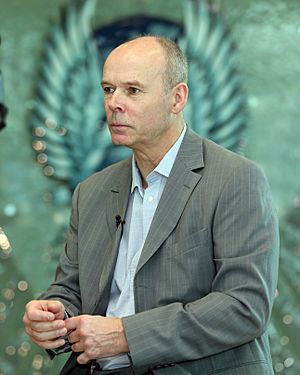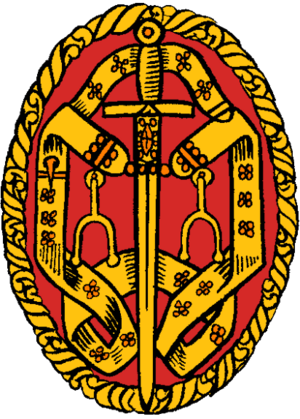Clive Woodward facts for kids
 |
|||||||||||||||||||||||||||||||||||||||||||||||||||||||||||||||||||||||||||||||||||||||||
| Birth name | Clive Ronald Woodward | ||||||||||||||||||||||||||||||||||||||||||||||||||||||||||||||||||||||||||||||||||||||||
|---|---|---|---|---|---|---|---|---|---|---|---|---|---|---|---|---|---|---|---|---|---|---|---|---|---|---|---|---|---|---|---|---|---|---|---|---|---|---|---|---|---|---|---|---|---|---|---|---|---|---|---|---|---|---|---|---|---|---|---|---|---|---|---|---|---|---|---|---|---|---|---|---|---|---|---|---|---|---|---|---|---|---|---|---|---|---|---|---|---|
| Date of birth | 6 January 1956 | ||||||||||||||||||||||||||||||||||||||||||||||||||||||||||||||||||||||||||||||||||||||||
| Place of birth | Ely, Cambridgeshire, England | ||||||||||||||||||||||||||||||||||||||||||||||||||||||||||||||||||||||||||||||||||||||||
| Height | 5 ft 11 in (180 cm) | ||||||||||||||||||||||||||||||||||||||||||||||||||||||||||||||||||||||||||||||||||||||||
| Weight | 12 st 8 lb; 176 lb (80 kg) | ||||||||||||||||||||||||||||||||||||||||||||||||||||||||||||||||||||||||||||||||||||||||
| School | HMS Conway Naval School | ||||||||||||||||||||||||||||||||||||||||||||||||||||||||||||||||||||||||||||||||||||||||
| University | Loughborough University | ||||||||||||||||||||||||||||||||||||||||||||||||||||||||||||||||||||||||||||||||||||||||
| Spouse | Jayne née Williams | ||||||||||||||||||||||||||||||||||||||||||||||||||||||||||||||||||||||||||||||||||||||||
| Occupation(s) | Part-time pundit | ||||||||||||||||||||||||||||||||||||||||||||||||||||||||||||||||||||||||||||||||||||||||
| Rugby union career | |||||||||||||||||||||||||||||||||||||||||||||||||||||||||||||||||||||||||||||||||||||||||
|
|||||||||||||||||||||||||||||||||||||||||||||||||||||||||||||||||||||||||||||||||||||||||
Sir Clive Ronald Woodward (born January 6, 1956) is a famous English former rugby union player and coach. He is best known for coaching the England rugby team to victory in the 2003 Rugby World Cup. He also coached the 2005 British & Irish Lions tour to New Zealand. Today, he works as a sports expert for ITV Sport, sharing his knowledge on rugby events like the Six Nations and Rugby World Cup.
Contents
Early Life and School
Clive Woodward was born in Ely, Cambridgeshire, England. His father was a pilot in the RAF. Clive went to school in Edinburgh and later attended HMS Conway, a special school ship. His father wanted him to go there because he didn't approve of Clive's dream of becoming a professional football player.
At Conway, Clive played rugby union as a centre. He played alongside Iain Duncan Smith, who later became a well-known politician. Clive once said that he wasn't chosen to play for the Welsh Schoolboys team because he was English, even though he was good enough. After school, he got a job at a bank in London.
Playing Rugby
Clive Woodward started his rugby career at Harlequins. He then went to Loughborough University and earned a degree in sports science. After university, he played as a centre for Leicester from 1979 to 1985.
He played his first game for the England team on January 19, 1980, against Ireland. England won all their games that season, achieving a "Grand Slam." Clive played 21 games, called "caps," for England. His last game was on March 17, 1984, against Wales. He also played for the British Lions team on their tours to South Africa in 1980 and New Zealand in 1983. He was known for his strong partnership with fellow Leicester player Paul Dodge.
Coaching Rugby
Clive Woodward returned to the UK in 1990 and started his own IT company. He also began coaching rugby at a small club called Henley Hawks, helping them move up to the national leagues. After coaching at London Irish, he became an assistant coach at Bath.
In 1997, Clive Woodward became the head coach of the England team. His goal was to help the team become professional. England improved a lot under his leadership. They won the Six Nations in 2000 and 2001. In 2003, they achieved a Grand Slam by winning all their Six Nations games, including a big 42–6 victory over Ireland.
England continued their success by beating the All Blacks in New Zealand for the first time since 1973. They won 15–13, even with two players temporarily sent off. A week later, they beat the world champions Australia 25–14 in Melbourne, which was England's first win ever on Australian soil.
Winning the Rugby World Cup
England went into the 2003 Rugby World Cup as the top-ranked team and favorites to win. They won against Georgia, South Africa, Samoa, Uruguay, Wales, and France. This led them to the final, where they played against the host team and defending champions, Australia. England won the final 20–17, thanks to a last-minute Jonny Wilkinson drop goal in extra time. This was a huge moment for English rugby.
After this victory, Clive Woodward was made a "Knight Bachelor" in 2004, which means he received the title of "Sir." From 2000 to 2003, his England team won 41 out of 46 matches. They also had a perfect record of 20 wins at Twickenham and won 12 games in a row against the top teams from the Southern Hemisphere. England is still the only team from the Northern Hemisphere to have won the Rugby World Cup.
After the World Cup, some key players retired, and star player Jonny Wilkinson was injured. England finished third in the 2004 Six Nations. Clive Woodward's last tour as England coach was to New Zealand and Australia, where England lost all their matches.
In February 2004, he was chosen to coach the 2005 British & Irish Lions tour to New Zealand. However, the Lions lost all three test matches. Some people criticized his coaching and team choices during this tour.
In 2011, Clive Woodward was honored by being added to the IRB Hall of Fame.
Moving to Football
Clive Woodward's contract with England was supposed to last until 2007. However, after some key players retired and facing challenges in English rugby, he decided to leave his role as England coach on September 1, 2004.
He became interested in football. In 2005, he joined Southampton Football Club as their Performance Director. He didn't have much experience in professional football, and some people felt he had a difficult relationship with the club's manager at the time. He left Southampton on August 31, 2006.
Working with the British Olympic Team
On September 6, 2006, Clive Woodward returned to sports, but this time with the British Olympic Association. He became the new director of elite performance. This role involved helping British athletes prepare for the Olympic Games.
In 2007, he joined the board of directors for Leicester Tigers. He also had the honor of carrying the Olympic torch through London in 2008. At the 2008 Summer Olympics in Beijing, he helped review how things were done to prepare for the 2012 Summer Olympics in London. He left his role at the British Olympic Association in October 2012 after six years.
Books by and About Clive Woodward
Clive Woodward released his autobiography, titled Winning!, in 2004. In the book, he shares details about England's victory in the 2003 Rugby World Cup, including how they prepared and celebrated. He also writes about his personal life and his career as a player and coach. A biography about him, called Clive Woodward: the biography, was published a few months later.
Charity Work
Clive Woodward is an Honorary President of the Wooden Spoon Society. This is a children's charity that gets support from the rugby community. He has also played in charity golf tournaments to help raise money for children's causes.
Personal Life
Clive Woodward is married to Jayne Williams. They used to run a computer leasing business together and live near Maidenhead. In 2004, his old university, Loughborough University, gave him an honorary degree.
Honours and Achievements
Clive Woodward achieved many great things in his coaching career:
- Rugby World Cup
- Winner: 2003
- Quarter-finals: 1999
- Five/Six Nations Championship
- Winner: 2000, 2001, 2003
- Grand Slam: 2003
- Runner-up: 1998, 1999, 2002
- Third: 2004
- Triple Crown
- Winner: 1998, 2002, 2003
- Calcutta Cup
- Winner: 1998, 1999, 2001, 2002, 2003, 2004
- Millennium Trophy
- Winner: 1998, 1999, 2000, 2002, 2003
- Cook Cup
- Winner: November 2000, November 2001, November 2002, June 2003
- IRB International Coach of the Year
- Winner: 2003
Other Coaching Honours
- Henley Hawks
- Oxfordshire RFU County Cup
- Winner: 1991, 1992, 1993, 1994
- Courage South West 1
- Winner: 1992, 1994
- Oxfordshire RFU County Cup
See also
 In Spanish: Clive Woodward para niños
In Spanish: Clive Woodward para niños
- Eddie Jones
- Bernard Laporte
 | Bessie Coleman |
 | Spann Watson |
 | Jill E. Brown |
 | Sherman W. White |


